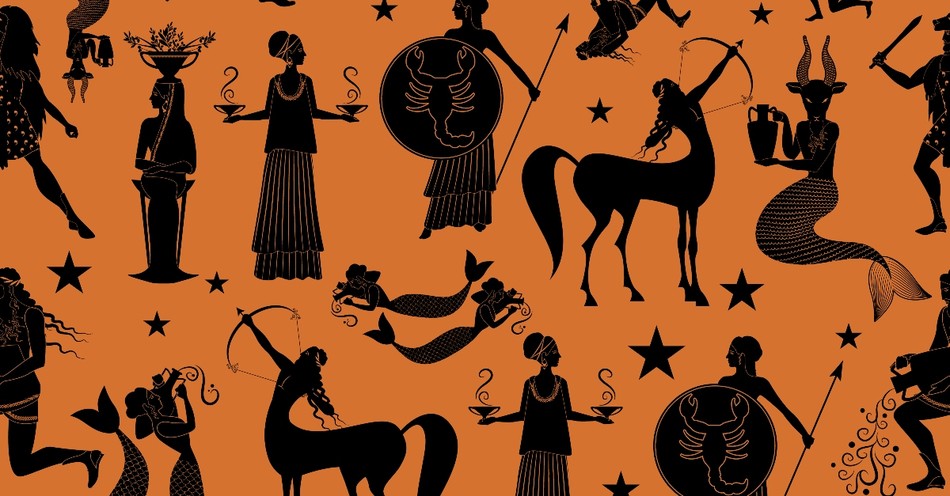In their book The Laughing Jesus, authors Timothy Freke and Peter Gandy expressed the belief that the Christian Bible evolved from other myths. “Each mystery religion,” they wrote, “taught its own version of the myth of the dying and resurrecting Godman, who was known by different names in different places. In Egypt, where the mysteries began, he was Osiris. In Greece he became Dionysus, in Asia Minor, he is known as Attis, in Syria he is Adonis, in Persia he is Mithras, in Alexandria he is Serapis, to name a few.”
This quotation gets the gist of their opinion across. The authors — like many non-believers — think Christianity is interesting, but not that original.
Despite taking numerous Bible and Christian philosophy classes, I only recently learned that a lot of people think this way. Since the concept of Christianity evolving from other religions is new to me, I would love to explore it with you. We’ll start by looking at why the belief is so prevalent, then segue into what makes it problematic.
Why It’s Popular
According to apologist Dr. Pat Zukeran, non-believers think Christianity grew from pagan practices because there are remarkable parallels between the two. These parallels include:
- Mithras— The Persian (and eventually Roman) god of the sun, oaths, and justice. According to Zukeran, Mithras was immaculately conceived, traveled with 12 disciples to whom he promised eternal life, and sacrificed himself for the world.
- Osiris— The Egyptian king of the Underworld. He was killed by Seth, the embodiment of chaos and evil, but became judge over the dead and exercised power over the living through his son.
- Dionysus— A Greco-Roman nature god of fruitfulness and merriment. Like Jesus, Dionysus was known for turning water into wine.
- The Epic of Gilgamesh— A Mesopotamian poem about a two-thirds-divine king named Gilgamesh. His travels entailed forbidden trees and a worldwide flood.
Why It’s Wrong
When faced with such a striking resemblance between Christianity and paganism, it’s no wonder non-believers feel secure in their non-belief. However, Zukeran pointed out two major flaws in the theory: One, it’s not logically sound; and two, it ignores the fundamental differences between the Christian and pagan narratives.
1. The Logical Fallacies
As solid as the theory may seem at first glance, a closer look reveals some flaws in the logic. Zukerman calls the first one the composite fallacy. People commit it by lumping many or all pagan religions into one unit before comparing them to Christianity.
More religions equal more common points equal more evidence. However, if you treat each pagan belief as its own entity before comparing it to our own faith, you’ll only find a few surface-level connections.
Zukerman also pointed out something he called the terminological fallacy. He states that while some terms exist in both Christian and pagan faiths, they’re often used quite differently. The word “resurrection” is a great example:
While Osiris is said to have resurrected from the dead, he doesn’t come back to life fully. He has to stay put in the Underworld and settle for metaphorically living through his descendants. Jesus, on the other hand, came back to life quite literally. This difference of definition proves that terminology alone is a poor point of comparison between religions.
Another common mistake non-believers make is committing the chronological fallacy. This is the assumption that the mystery religions existed before Christianity. There is no archaeological proof that other mystery religions were practiced in Palestine in the first century AD.
Additionally, Jews and early Christians stressed the uniqueness of their religion to the point that they loathed the idea of adopting gods, stories, or practices from other beliefs. In other words, they were too darn stubborn to let other ideas seep into their religion.
2. The Narrative Fallacies
Freke and Gandy cited the pagans’ early use of virgin births and death and resurrection as evidence that Christians were shameless copycats. But the phrase “virgin birth” means something radically different in each belief system. In pagan myths, a god lusts after and has a child with a mortal woman.
While Zeus is no more human than God is, his many mistresses don’t count as virgin births because there was sex involved. There may not have been sex in Mithras’s birth story, but that’s only because he wasn’t born at all; he sprouted fully-grown out of a rock. Neither scenario is comparable to God sending the Spirit to touch the Virgin Mary’s womb.
The little-G gods and the big-G God also disagree about the subject of death on several points:
- The amount of deaths— Pagans viewed history as a cycle and not a line, so their gods repeatedly died and came back. In contrast, Jesus only died once.
- The causes of deaths— In pagan myths, the gods never died voluntarily; they were killed by emasculation, hunting accidents, and other outside forces. Jesus is the only god who chose to die and did so for a selfless reason: to reunite humanity with the Father.
- The nature of deaths— The death of a pagan god or demigod was always a humiliating instance of defeat. Jesus’ death, on the other hand, was the ultimate triumph against evil.
What Does This Mean?
We covered a lot of ground together today, but many more twists and turns await you as you explore this debate on your own. It’s a long journey, but no matter where your search for knowledge leads you, know God is by your side and wants you to find the truth. Seek Him, and He will make it clear to you in His time.
©iStock/Getty Images Plus/MatiasEnElMundo




